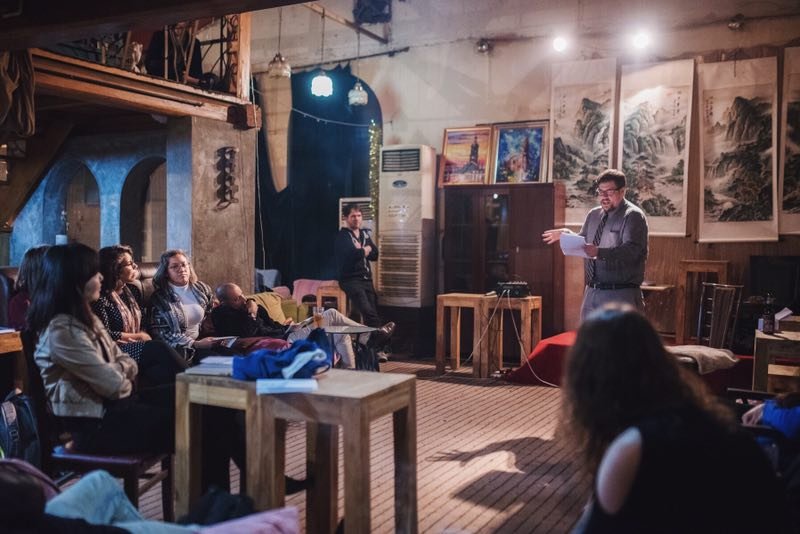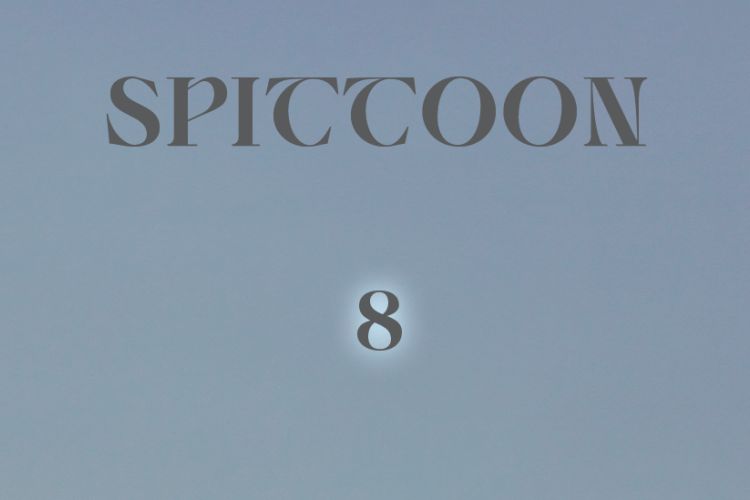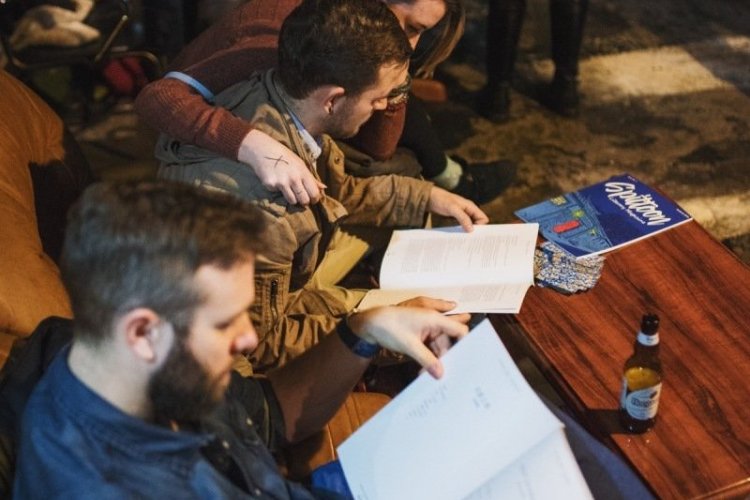Nosedive Into the Universe of Spoken Word With Spittoon Collective
If there was ever a reason to complain about the lack of diversity in Beijing's literature world, it's surely not now. The world of words has been revived and revamped, and is proudly parading Beijing's freshest literary face around the country, for which the Spittoon Collective can take credit. They are preparing for a literary tour, that will cover The Bookworms of Beijing, Chengdu, and Suzhou. The team behind Spittoon (a literary collective and a semi-annual magazine) will then bring some of the wordsmiths of Beijing, Chengdu, and Suzhou together for a fusion project involving an array of literary events. All the while, they will be busy working on the third edition of Spittoon Magazine (the last issue being released back in May). The collective will be accepting submissions of poetry, fiction, non-fiction, and artwork until October 23.
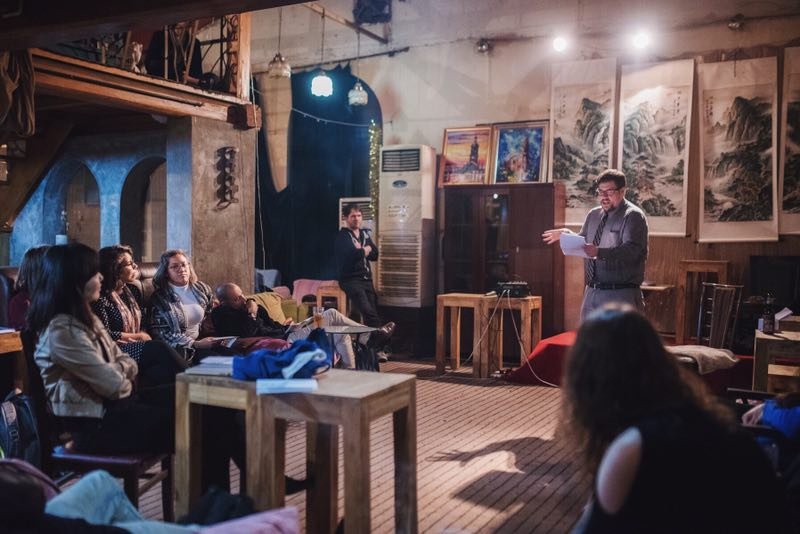
Collecting the brightest writing minds for their magazines, Spittoon collective is starting a series of slam poetry events, the first to debut at Hot Cat Club on September 21 and recurring every third Thursday of every month. Their poetry and fiction nights (the first and second Thursday of every month, respectively) have already been gathering steam, attracting growing numbers of local and foreign writers for readings and talks.
Slam poetry has been sprouting up at storytelling events and often acts as a sort of gateway drug, or a more dynamic alternative to traditional sit-down, candle-lit poetry readings. "Slam poetry is in your face and intense. It's looking for your reaction," one of the slam poetry event organizers, Laurence Couture, said when I recently met her and the brain behind Spittoon, Matt Byrne, in a lush hutong courtyard. We talked about literature in Beijing, the upcoming tour, black eyes from rooster wings and, of course, slam poetry. Another organizer, Hollie Montgomery, joined in by answering a few questions in the digital world.

TBJ: Spittoon is getting ready for a new magazine, starting slam poetry competitions and organizing a tour. How does that all come together? Are Beijingers looking to give a helping hand and get involved in the world of words?
Hollie: When we look at the evolution of Spittoon, with poetry and fiction nights, the magazine, Spit-tunes, and the tour, poetry slam is the next logical step. Slams are created to connect the listener and speaker in a way the other events don’t. Not being able to hide behind a notebook or a page or being far away on stage allows for freedom of emotion that you don’t find often. Beijingers want that connection. Beijingers are filled with stories, dreams, passions, and emotions that they want to share and have an empathic moment with their community.
Matt: The growth of Spittoon and its different facets has been a very organic process – from the poetry night to the fiction night, the birth and continued success of the magazine, more recent projects like our creative writing and music collaboration night (Spit-tunes) to our most recent creation – the Spittoon Poetry Slam. With each milestone, it’s becoming clearer and clearer that Spittoon is filling a creative space that at times feels boundless. We are surrounded by people from all over the world who have come to Beijing for a vast number of different reasons with a large variety of different skill sets. I feel like Spittoon’s evolution from a sequence of reading nights and a magazine to a burgeoning platform for different arts-based projects has brought in lots of talented people from many different places. We have a host of projects in the pipeline, from this three-city tour to partnering with other arts organizations to organize and curate a social art exhibit (more information here). One major consideration that we always have is how to work together with the Chinese arts scene to create the most compelling work possible, from creative writing translation in our magazines to many different kinds of collaboration and facilitation at our events.
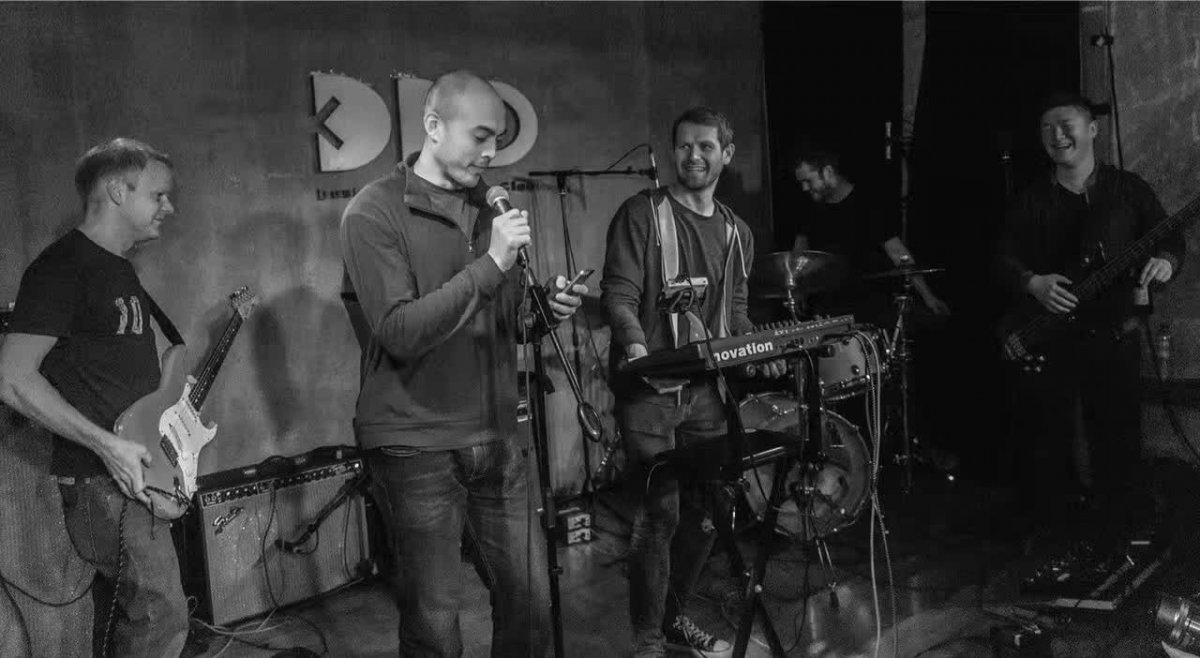
What's different between slam poetry nights and the classical poetry readings we know?
H: A poetry slam is a spoken word competition where poets recite their own original pieces in a friendly battle royal. It differs from classical poetry readings in style and atmosphere but, most importantly, there is no reading in a slam. I enjoy poetry night but it’s a lot more relaxed and mellow compared to slams. You can always see and feel the difference in the audience when someone slams compared to when they read. Slams are higher in energy because there is a time limit and it is a competition. Another difference: at poetry night or poetry readings you can read anyone’s work, but when you slam it has to be your own original piece. This adds a sort of raw element that makes slams really personal and differentiates them from any other kind of literature or poetry.
What's the genre that gathers more Beijingers: fiction, poetry or maybe something else?
M: Each event that we put on throughout the city tends to attract a different crowd. Spittoon Poetry and Spittoon Fiction both have their own flavors and the formats of the nights are actually quite different. The music and poetry collaboration night that we organize, Spit-tunes, brings in a very large crowd every time that it’s featured at DDC. I think people appreciate the concept behind the month-long collaboration between poet and musician and it’s also a chance to collaborate poetry with lots of different kinds of musical genres. I’m especially excited about our Spittoon Poetry Slam night at Hotcat Club on the September 21 because nothing like it has ever come to Beijing in such an organized fashion before – we have an amazing team of poetry slammers from all around the world organizing it, and the clamour and interest that they’ve already generated has proved without a doubt already that it’s going to be an amazing evening!
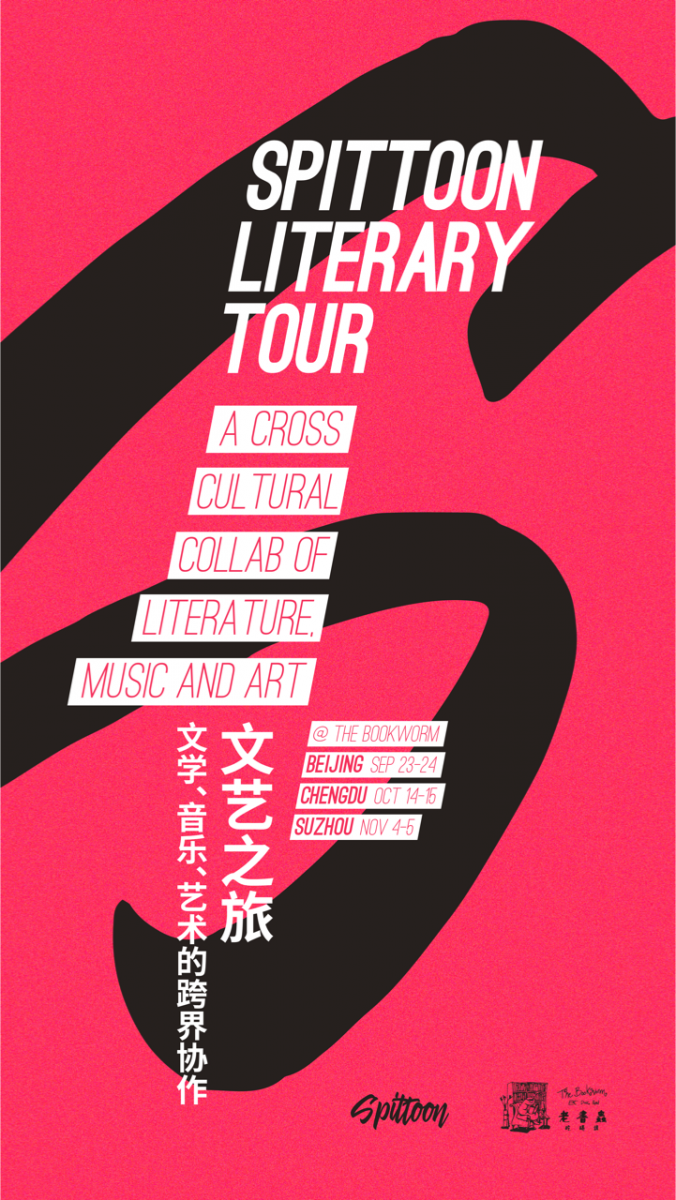
TBJ: What about the Spittoon tour? What are you bringing with you and where?
M: Spittoon already has an established reading night that takes place in the Bookworm in Chengdu and we have only really connected with the organizers and crowd online. They’ve been doing an amazing job down there and this tour will allow us to meet them in person. For me, that was one major motivation of the tour and also to explore the foreign and Chinese literary scenes in each of the places we’ll be visiting. It remains to be seen how many writers and artists from Beijing will join us as we visit each place, but as I mentioned, there is already a Spittoon presence in Chengdu and an exciting opportunity to explore Suzhou with Shanghai just on its doorstep. The Spittoon Literary Tour tries to encompass everything that is Spittoon under one roof, and the Bookworm has very kindly agreed to facilitate us as we try to make that happen. The only goal for this tour, and for each of the tour’s dates, is to meet new creative people and hopefully bring them in contact with us for continued collaborative and creative endeavors in the future. We always are and will continue to be open to ideas to forge connections between all disciplines of art if ever we can.
"Are there any other secret questions you wanted to ask?" Matt asked as the smog in the air was getting heavier. I thought some secrets should maybe remain covered and untangled only when attending one of the Spittoon events.
Find more information about Spittoon collective magazine, events and the ways to take part in them by following their WeChat account:
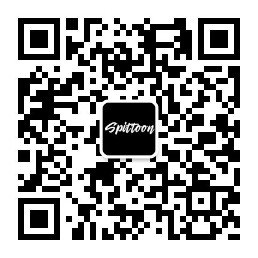
More by the author here.
Images courtesy of Matt Byrne

